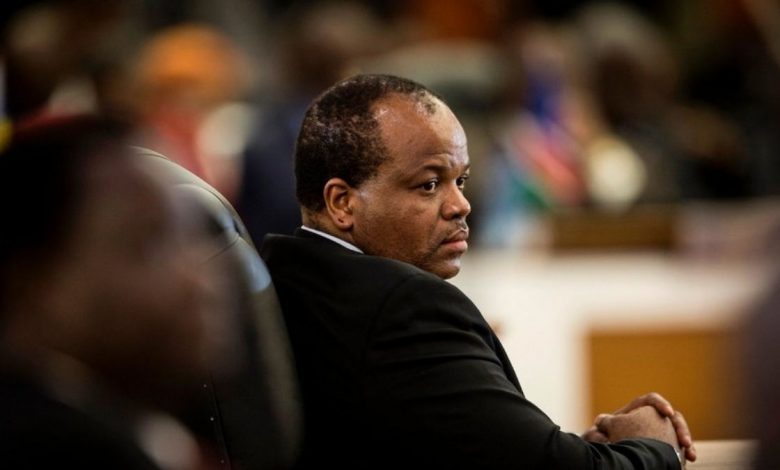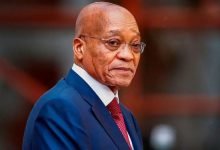Africa’s Last Absolute Monarchy Not So Absolute Anymore

Pro-democracy protests have rocked Africa’s last absolute monarchy- Eswatini after death of a law student
The last absolute monarchy in Africa, Eswatini (formerly Swaziland), is witnessing a mass uprising as pro-democracy protests against its monarch King Mswati III of Eswatini have spread across the nation. The protests in began in May after Thabani Nkomonye, a law student, was found dead in circumstances that pointed to police involvement. Students were the first to hit the streets, but others followed to express frustration after a ban was imposed on citizens petitioning King Mswati III, one of the few ways that Swazis can register an official complaint.
Led by Eswatini’s youth, the protest movement has now broadened to include an array of demands, from the introduction of multi-party democracy to improved economic prospects and an end to brutal crackdowns. “We urge you to call Mswati to order,” said Sonke Dube, president of the Swaziland Youth Congress, which is involved in the demonstrations. “Isolate him from the community of peace-loving nations. Impose sanctions on him and his immediate family and cronies until we have a people’s government in Swaziland,” Dube added in a statement.
In this tiny landlocked nation, between South Africa and Mozambique, many are on the brink of hunger and have to cross into South Africa to find work. About six out of 10 of its citizens, live in poverty. In a stark contrast to the poor economic conditions of the country, the King and his family have lavish lifestyle of luxury cars and palaces, and his children openly flaunt their opulent birthday parties on social media.
Anger against Eswaitini’s King Mswati III has been building for years in the country. However, protests against him are rare. However, over the past week, the tiny southern African nation, formerly known as Swaziland, has descended into the most explosive civil unrest in its 53 years of independence.
Thousands of protesters have taken to the streets in the executive capital, Mbabane, and elsewhere, with many burning and looting businesses in which the king holds a stake. The government said on Tuesday that it has imposed a curfew from 6 pm to 5 am and ordered businesses to close by 3.30 pm.
The protests are being dealt with a heavy hand with witnesses, activists and hospital staff reporting that the military and the police have fired live rounds at protesters and looters. Hospitals are overwhelmed with an influx of gunshot victims, several nurses said. Their supplies of oxygen and medications are depleted, their staffs are overworked and they are running out of food for the large number of patients.
There is a shortage of gas and food across the country, as supply trucks are unable to enter the country amid the unrest, according to news reports. And there have been internet blackouts, which activists believe to be a deliberate attempt by the government to curb information.
Tight Grip of the Monarchy
The country has lived under an absolute monarchy since 1973, when King Sobhuza II revoked then-Swaziland’s post-independence constitution and declared himself the country’s absolute authority. In 2018 the country’s name was changed to Eswatini. As Africa’s last absolute monarch, King Mswati III chooses his country’s prime minister and cabinet, and possesses the power to dissolve Parliament.
After the country gained independence in 1968, Sobhuza II, whom the British colonizers had designated the top chief, became king. That power was passed down to 18-year-old Prince Makhosetive, King Sobhuza II’s son, in 1986, four years after the king’s death. The prince took the title King Mswati III.
Even though King Mswati III, now 53, acceded to the demands for a new constitution in 2005, he has not yielded his absolute grip over the country. His family holds a stake in numerous business ventures, including at least a 25 percent cut of mining deals in the country. Much of that wealth goes toward supporting his sprawling family — 15 wives and more than 30 children. The grandiose spending in the face of a suffering population has sparked protests over the years.
In a rare rebuke neighbouring South Africa’s ruling African National Congress (ANC) has criticised the government for violence against demonstrators. “The use of security forces to quell political dissent and the failure to address legitimate civilian concerns complicates the conflict and adds fuel to the fire,” said the ANC’s head of international relations, Lindiwe Zulu.
The US State Department has also urged Eswatini authorities “to exercise restraint and also maintain the utmost respect for human rights”, including the right to protest peacefully.
